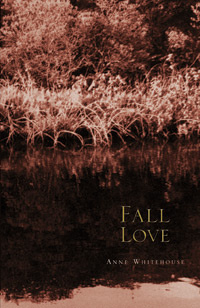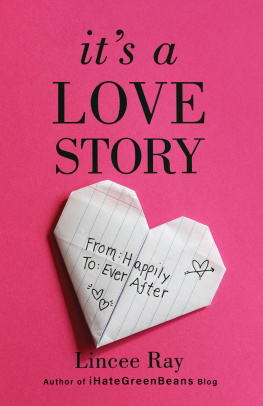Published: 2008
Tag(s): fiction amor "absurd comedy" literature "literaryfiction" roman love "romantic triangle" "art and artists""art/teaching artists in love" "gay novel" "bisexual novel"
Copyright
Copyright 2001 by Anne Whitehouse.
Library of Congress Number 00-192772
ISBN # Hardcover 0-7388-4826-3
Softcover 0-7388-4827-1
All rights reserved.
From Easter 1916. Reprinted with permission of Scribner, aDivision of Simon and Schuster from The Collected Poems ofW.B.Yeats. Revised Second Edition edited by Richard J.Finneran. Copyright 1924 by Macmillan Publishing Company, renewed1952 by Bertha Georgie Yeats.
For the description of the Aeolian harp in Chapter Twenty-one, theauthor gratefully acknowledges permission to quote from The NewGrove Dictionary of Music and Musicians, edited by StanleySadie, copyright Macmillan Publishers Ltd., 1980.
This is a work of fiction. Names, characters, places andincidents either are the product of the author's imagination or areused fictitiously, and any resemblance to any actual persons,living or dead, events, or locales is entirely coincidental.
Dedication
For Stephen Whitehouse, who endured it
and in memory of the Worthens
Mark, who encouraged it
and, especially,
Eleanor, who transformed it
Epigraph
It is hard to withstand the hearts desire, and it gets what itwants at the psyches expense.
Herakleitos, 51
Acknowledgments
Mark and Eleanor Worthen, in whose memory this book isdedicated, sustained me through years of writing and rewriting withtheir love, wisdom, and encouragement. They were my greatcollaborators. I am most deeply indebted to Eleanor, without whomFall Love would not exist. I cannot imagine a moregenerous, diligent, and devoted reader or a more painstaking andaccurate editor. I am grateful for her graceful phrasing,infallible ear, precise memory, and logical mind.
In this endeavor, as in so many others, Mark was Eleanors truepartner. I credit his empathy, insight, and balancedjudgment.
I thank my husband Stephen Whitehouse, to whom this book is alsodedicated, for his support, love, and companionship which helped mestay the course from beginning to end. He is my true partner.
Of other individuals and institutions who offered inspiration andhelp for Fall Love, I single out for credit:
Ellen Sirot, for her insight into and knowledge of dance, dances,dancers, and dance companies; and for her sensitivity andperspicacity as a reader;
Stuart Caplin of The Center for Musical Antiquities who showed mean Aeolian harp and told me its story;
Dr. Jonathan Deland and Dr. Peter McCann, who told me aboutLisfranc fractures;
Staff of the Metropolitan Museum of Art, the Joyce Theater, andAuer Van and Express Company, Inc. for expertise andassistance;
Hugh and Martha Whitehouse, for Sanibel Island;
The MacDowell Colony, where parts of two chapters werewritten.
For those of you who helped me and who remain nameless in thesepages, a heart-felt thank you.
About the author: Anne Whitehouse was born and grew up inBirmingham, Alabama. She received degrees from Harvard College andColumbia University. She is the author of The Surveyor'sHand, a collection of poems. She lives in New York City withher husband and daughter.
www.annewhitehouse.com
Chapter
On vacation on an island in the summer sea, Althea lived thelife she aspired to: she devoted herself to painting. All year longin New York City she had scrimped and saved to give herself threeweeks of solitary inspiration on Block Island. Renting a housesight unseen over the phone, she had come with empty canvases,paints, brushes, palette knives, and hope; and what she foundexceeded her fondest imaginings: Althea believed herself to be inParadise.
Happiness suffused her like light. She, whoconsidered herself a connoisseur of sights, had fallen in love atonce with her island retreat. Low and modest, blue and gray, thehouse sat on a sloping hillside overlooking fields of bayberriesand the sea. She marvelled at how it suited her, as if it had beenmade for her.
She wondered about the owner. She guessed he hadbuilt the house himself, because it was simple, yet with charming,individual touches. She saw signs of his taste and evidence of hishandiwork in the odd angles of his rooms, the iron latches thatfastened the windows and closed the closets, in the sunny windbreakbehind the house which made a perfect breakfast nook, and on thedeck outside the bedroom's double door that looked out to the sea.From the real estate agent she had learned that he was elderly andof foreign birth. Eating from his plates, eyes lifted to a view,she speculated as to whether need of money or ill health caused himto rent his retreat. She blessed her good fortune. It was almost asif the house had found her, rather than the other way around.
The August days passed, long, languorous, andutterly free. Watching a spider's web in sunlight, Althea imaginedthat she was like that, alternately shining and hidden, waiting inspeculation. What would stumble in? Every day at dusk she strippedfor the sea and ran over sand and flat stones into water as smoothas pale isinglass. Thigh-deep she paused, shivering. Then shesurface-dived, and the cool water covered her head. She flutteredto the sea floor like a wind and played her fingers over the softridges the waves had made.
She began her paintings, a suite of four whichshe worked on in succession. They were scenes abstracted fromnature: a forest, a meadow, a pond, the sea. So much she knew, therest she set out to discover. The mud was rinsed from her colors.Each stroke had its place: a center and an edge that met theothers. On the flat canvas, she wanted to suggest an inexhaustibledepth. "See what drew you in," she told herself as both anadmonishment and a rapture, as a jolt to the memory of what hadmade her turn so long ago to art.
Part by painstaking part, her paintings grew.Very quickly, she poured her mind in a thin layer over the surfaceand instantly sucked it back, a flash of consideration to balancethe obsessive priorities of the brush. It was a way of ferretingout a wrong choice against the harmony she invoked, hard and clearas glass though rendered in the compliance of pigment.
Althea's sense of how she benefitted frompainting differed from the opinions of "the outside world." Still,she flinched when she was faced with questions about her earningsfrom art, for she was ambitious and proud. Though she would haveliked it to be otherwise, art was presently her luxury, andteaching art was her livelihood. The time she had off from thelatter she felt obliged to give to the former. How wonderful itwould be if this house were really hers! But when her tenancy wasover, she'd have no money left.
In the meantime Althea relaxed, and her moodswere submerged in the island's changeable weathers and heradaptable routines. She worked in the morning, ate at noon, swam atdusk; and many afternoons she whiled away in daydreams, letting thesun tan her, or the fog wrap her in white moisture.
Against the hazy sky, she watched theconsecutive flights of swallows constantly defining new spaces inthe air that she seemed to possess and then instantly lost. Shethought that if, in her paintings, she could manage to evoke theimpermanence around her, then she would reclaim it forever.













